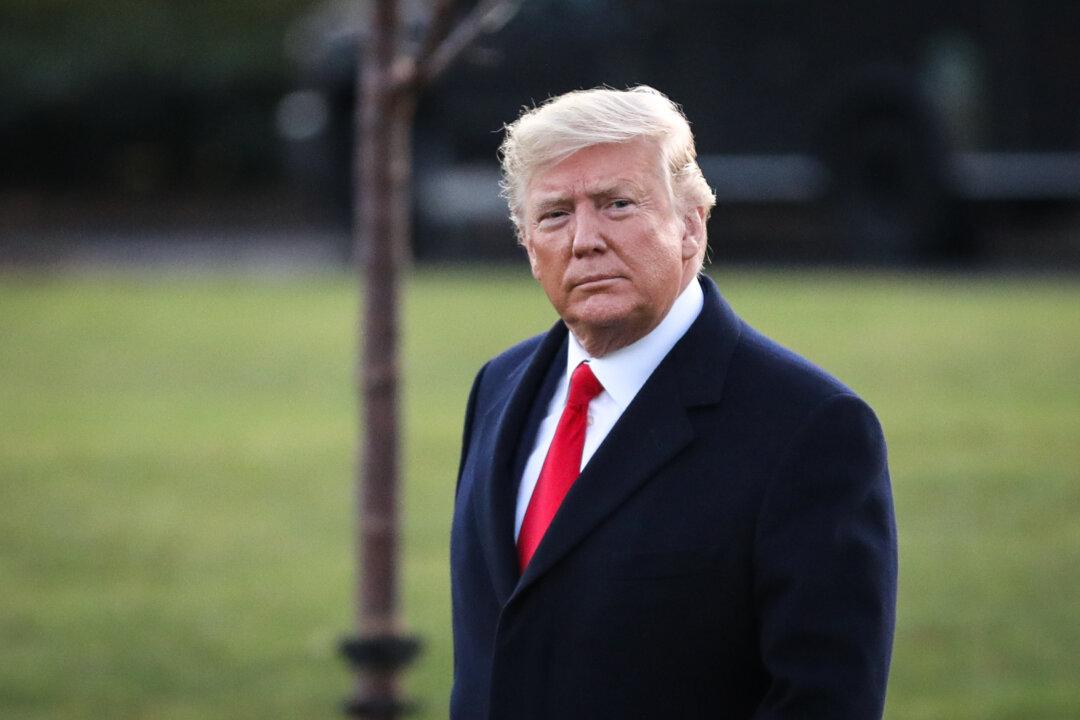President Donald Trump over the weekend reiterated his threat to target Iranian cultural sites and vowed on Jan. 6 that Iran would “never” have enough material to build an atomic weapon.
On Jan. 5, Trump invited reporters into his Air Force One cabin for roughly 30 minutes as he spoke on and off the record about the threat of Iran. In on-the-record remarks, he threatened sanctions against Iraq after its Parliament called on U.S. troops to leave the country.





